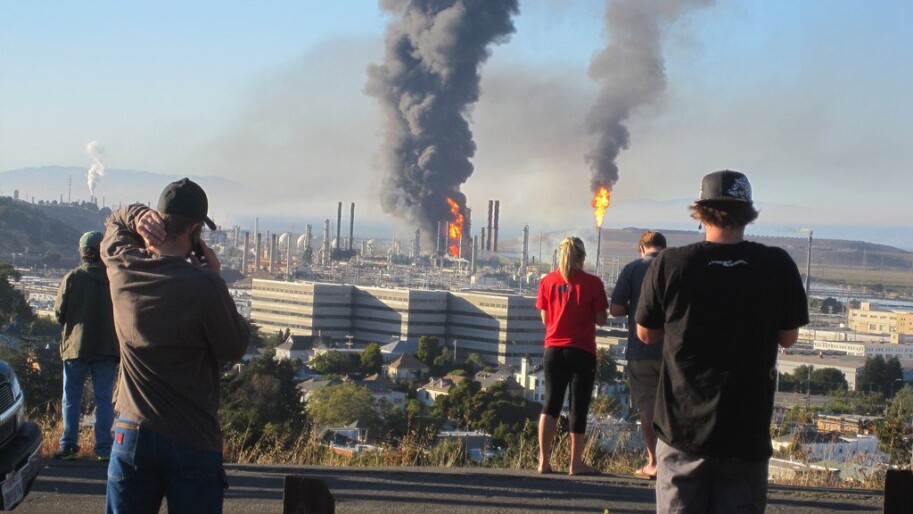Thanks to you who contacted your legislators about SB 775. This remarkable bill would have overhauled California’s cap and trade system in a very favorable way. SB 775 got lost when the Governor’s bill emerged. Here’s Mercury News’ take on what happened. After the dust settles we’ll send you our view of the Governor’s bill.
Debate rages over California cap-and-trade deal, concessions to Big Oil
by Kate Murphy, Mercury News
SACRAMENTO — A new deal to extend California’s landmark climate program known as cap and trade was met with both praise and condemnation Tuesday as environmentalists, business groups and lawmakers worked furiously to untangle — and wrangle over — the complex proposal that could be up for a vote within days.
Reactions to the agreement, unveiled late Monday by Gov. Jerry Brown and top lawmakers after weeks of closed-door talks, reflect a long-running split in the world of environmental advocacy. As grass-roots “environmental justice” groups expressed shock over regulatory changes and other concessions granted to Big Oil, mainstream environmental organizations such as the Environmental Defense Fund and the Nature Conservancy lined up behind the hard-fought compromise as a pragmatic way forward.
One of the more controversial provisions of the bill would block local air regulators from setting additional carbon-emission rules for industry. The proposal also would limit the California Air Resources Board’s ability to set rules for carbon outside of the cap-and-trade program.
“The concessions to industry are bitter pills,” Alex Jackson, legal director of the Natural Resources Defense Council’s California climate project, said in a statement, “but on balance the package ensures our emissions limits are enforceable against polluters and secures critical gains to improve air quality for millions of Californians. The world is watching for California to chart a path through the climate denial and obstruction coming from the White House — and California is yet again poised to deliver.”
Securing the future of the cap-and-trade program — and protecting it from future court challenges — will require a two-thirds vote in the Legislature, a heavy lift especially in the more politically moderate state Assembly, where another cap-and-trade proposal last month failed to win even a majority vote. So far, no Republicans have publicly come out in support of the bill, but Brown and other supporters are working to drum up the support they need from both sides of the aisle.
Assembly Bill 398 would extend through 2030 a program that sets an ever-lowering cap on greenhouse gas emissions and essentially requires industry to pay to pollute, acquiring permits for every ton of carbon released into the atmosphere.
State regulators now issue millions of free permits, but had planned to begin weaning factories and the refineries from the help starting next year, forcing them to pay for a larger share of the permits. Instead, the new proposal would keep the aid flowing. Free permits for the oil and gas industry alone would add up to $10 billion-$30 billion from 2018 to 2030, said Danny Cullenward, an economist and researcher with the Carnegie Institution for Science at Stanford University.
“The biggest winners of this proposal are the oil industry, by and large,” said Cullenward, who advised Sen. Bob Wieckowski, D-Fremont, on another cap-and-trade proposal that has been stalled in the Senate.
Officials with the governor’s office say that the free permits are designed to keep industry from leaving the state and emitting carbon somewhere else. They argue that this and other concessions won’t slow emissions reductions — the overarching goal of the program.
But the change to local authority would stop the Bay Area Air Quality Management District from setting new limits on greenhouse gases from the area’s Chevron, Shell, Tesoro, Valero and Phillips 66 refineries — a proposal scheduled for a vote in September. The air district — which opposes the cap-and-trade bill for that reason and others — would be able to set a cap on emissions that contribute to local air pollution, but not on carbon.
“We find it painful to be in a position where we’re having to oppose a goal that we support so strongly,” said Tom Addison, a senior policy adviser for the Bay Area district.
Contra Costa County Supervisor John Gioia, who serves on both the Bay Area Air Quality Management District board and the California Air Resources board, said he was concerned about the regulatory changes.
“My reaction to this is it is unfortunate that the bill takes away local authority to regulate greenhouse gases at large, stationary sources like refineries,” he said. But he noted that “this is part of the horse-trading in Sacramento to get the two-thirds vote to extend cap and trade.”
Indeed, winning the blessing of the Western States Petroleum Association and other industry groups was widely seen as a political necessity — the only way to secure support from business-friendly Democrats and some Republicans.
The California Chamber of Commerce on Tuesday said only that it was reviewing the bill language, and the petroleum association did not respond to requests for comment.
Two Bay Area business groups — the Silicon Valley Leadership Group and the East Bay Leadership Council — quickly endorsed the measures. The negotiations, said Mike Mielke, one of the Silicon Valley group’s executives, “have resulted in a proposal that maintains the integrity of the program while balancing the needs of the business community.”
To address local environmental concerns, especially in districts long burdened by dirty and toxic air, Brown and top leaders introduced a separate bill, Assembly Bill 617. It would require oil refineries and other plants in heavily polluted areas to replace their equipment with cleaner technology by the end of 2023. The bill could pass with only a simple majority vote.
“Overall, I find it really encouraging that they went the route of a separate bill targeting local pollutants,” said Professor James Bushnell, a UC Davis economics professor and former research director at the University of California Energy Institute in Berkeley. “To get to two-thirds, you need a coalition of the people who are really focused on the local pollutants joining the people who are focused on the climate question.”
But the air-quality bill was not enough to assuage the concerns of advocates such as Amy Vanderwarker, of the California Environmental Justice Alliance.
While it contains important provisions, she said, “Our bigger picture analysis is that even with those steps forward in the air quality bill, it’s not enough to justify the backsliding under AB 398.”


